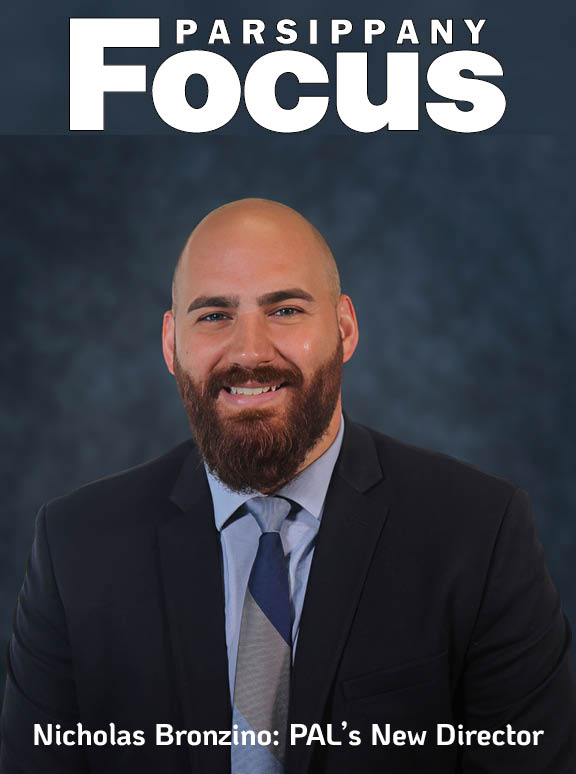PARSIPPANY — Israel-based Teva Pharmaceuticals is in the midst of a $3 billion cost-cutting plan that includes cutting 14,000 jobs worldwide. Some of those jobs are in the U.S. But New Jersey has approved a plan that would save 1,000 jobs in New Jersey and relocate the company’s U.S. headquarters to 400 Interpace Parkway from its current location in Pennsylvania.
The New Jersey Economic Development Authority has approved a 10-year, $40 million tax credit package to encourage Teva Pharmaceuticals to move its U.S. headquarters from Pennsylvania to Parsippany, where it would lease more than 345,000 square feet to house more than 1,000 employees. If Teva accepts, it would bring 843 jobs to New Jersey and keep 232 of the jobs Teva already has in Parsippany.
Teva’s U.S. operations are in Frazer, Pennsylvania, just outside of Philadelphia. The proposed site, 400 Interpace Parkway, is a 541,000-square-foot complex near the intersection of interstates 80 and 287. Real estate investor P3 Properties acquired the former Morris Corporate Center III last year and has since rebranded it as MCCBLUE, as part of a multimillion-dollar upgrade of the four-building campus.
An analysis by the EDA found New Jersey to be the more expensive option and said the move would involve a capital investment of nearly $31.5 million. The authority also said the project in Parsippany would have an estimated net benefit to the state of $247.4 million over 20 years.
In February, Teva announced that it was cutting 46 jobs in Parsippany, although there was little information about when they would be terminated. There was a second wave of U.S. based cuts Teva had planned. In January, Teva slashed 208 employees in Pennsylvania. They were planned to occur across several of the company’s locations in the Philadelphia area, including 65 in North Wales and Horsham, 47 jobs in West Chester, and 96 positions in Frazer and Great Valley.
Teva has a world-leading position in innovative treatments for disorders of the central nervous system (CNS), including neurological and neurodegenerative diseases, pain, and movement disorders, as well as a strong portfolio of products to address respiratory disease, including asthma, allergic rhinitis, and chronic obstructive pulmonary disease (COPD). Across its specialty medicines portfolio, Teva focuses on developing, personalizing and improving treatment of disorders for patients in CNS, respiratory, oncology, and select local/regional therapeutic areas. Teva integrates its generics and specialty capabilities in its global research and development division to create new ways of addressing unmet patient needs by combining drug development capabilities with devices, services and technologies.
The U.S. job cuts are only a small part of the thousands the company has planned. Teva announced in December 2017 that it planned to cut about 25 percent of its global workforce, or about 14,000 people. Alongside those job cuts, Teva indicated it was closing a number of facilities. Divesting the properties would help it achieve its goal of efficiency and substantial cost savings. Many of the facilities being cut were acquired through acquisitions or were redundant.
The company has a debt that ranges between $30 and $35 billion. By eliminating 14,000 jobs, it expects to save $3 billion by the end of 2019. The cuts are expected to be made over the next two years, with the majority of them made in the first part of this year.
The Teva board of directors took a 50 percent pay reduction. In addition, Teva has been divesting itself of non-core assets. In February, it announced it had completed the sale of a portfolio of products within its global women’s health business for $703 million in cash. In 2017, it sold its branded contraceptive line Paragard, a product within its global Women’s Health business, to CooperSurgical for $1.1 billion.
The plan appears to be working. Company shares traded for $11.23 on November 2, 2017, and are currently at $24.33, still below its $33.19 on July 13, 2017. In what is a likely show of faith, Warren Buffett’s Berkshire Hathaway doubled its stake in the company in the first quarter of this year to 40 million shares from its reported stake of 18.8 million in the fourth quarter of 2017.
Its first-quarter financial report on May 1 cited revenues of $5.1 billion for the quarter, although that is a decrease of 10 percent from the same quarter in 2017. However, the company also reported significant decreases in expenses across the board for the quarter compared to the same period from the previous year.
Kare Schultz, the company’s new president and chief executive officer, said in a statement, “2018 is off to a solid start. Our restructuring program is proceeding well, and we are on track to meet our cost reduction targets of $1.5 billion in 2018 and $3.0 billion by the end of 2019. During this quarter, our strong cash flow allowed us to continue to reduce our outstanding debt, and together with our recent debt issuance and covenant amendment, has placed Teva on a more stable financial footing.”














